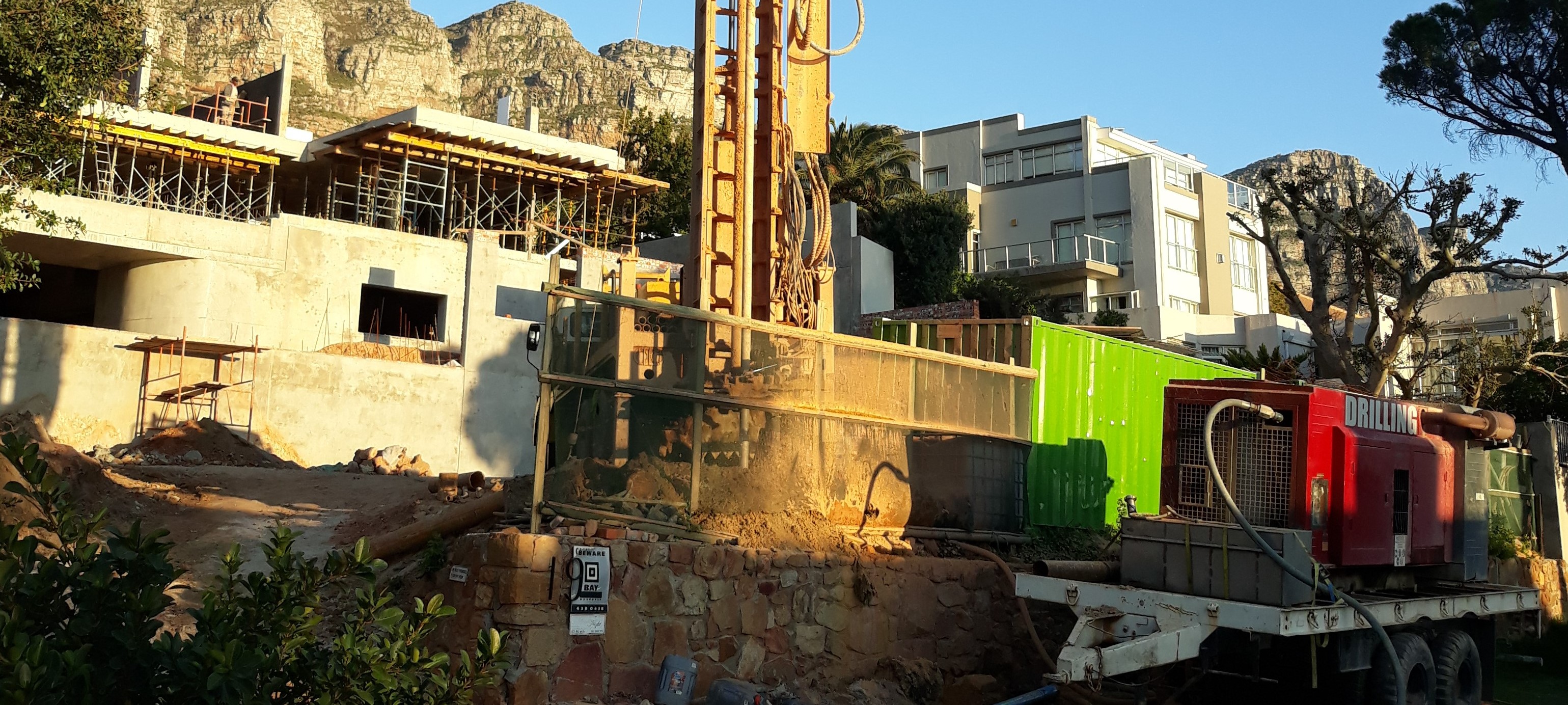Individual Choice, Access to Water and Pathways to Resilience in Sub-Saharan Africa

The Water Stressed Cities (WSC) project explores the factors shaping the response of households to the threat of water shocks in four major cities – Cape Town, Dodoma, Lagos and Windhoek – and how their actions can affect the wider resilience of the places where they live and surrounding communities. One of the key features of the research is to explore the role of groundwater in promoting the resilience of cities, and urban communities.
The project will run from January 2020 – December 2025.
Background to the Project
Building resilience to water crises is one of the primary challenges facing cities today. The pressures are particularly acute in sub-Saharan Africa, where rapid rates of urbanisation and economic growth, combined with the challenge of climate change are creating both slow burn and rapid onset water stress.
With funding from UK Research and Innovation (UKRI), the Water Stressed Cities (WSC) programme of research examines the positive role households can play in promoting urban resilience, but also the risks and challenges this can present over time. The research focuses on the cities of Cape Town, Dodoma, Lagos and Windhoek. It combines research into urban water governance, hydrogeological contexts, social learning, behavioural psychology and socio-economic outcomes.
Cardiff University and UCT’s African Climate and Development Initiative (ACDI) are collaborating with a research focus on how individuals and organisations in Cape Town respond to water crises (notably the 2015-2018 drought) over time, and how these responses influence collective resilience outcomes.
Key Activities
The Cape Town-based research will examine how the Day Zero water crisis was framed and experienced from different perspectives and undertake qualitative research with households to explore how their encounters with water, now and in the past, influence their actions to achieve their own ‘water secure’ future.
The research considers the role individual decision-making plays in collective resilience outcomes. The initial focus is on domestic water supplies and will involve qualitative interviews with households that have invested in securing their own water supplies to supplement or replace those provided by the municipality.
The work involves three types of data collection:
- a desk-based review of existing published materials, including academic articles, reports, recorded interviews and policy documents relating to the 2015-2018 drought and Day Zero water crisis;
- a series of stakeholder interviews with relevant government officials, hydrogeologists, representatives of non-governmental organisations, consultants and academics;
- a series of household interviews with those who use groundwater as part of their domestic water supplies.
These activities were conducted in 2023. A second round of interviews will be conducted in 2024 (enabled by securing additional project funding). Analysis, presentation and discussion of emerging findings and implications for ways forward around co-governing groundwater is the focus for 2024 and into 2025.
Project Outputs
- Research Report - Exploring the Role of Water Services Intermediaries (WSIs) in Aligning Private and Public Adaptation to Water Scarcity in Cape Town, South Africa
- Research Brief - Fostering water resilience in Cape Town: Groundwater and domestic water use
- Research Brief - Key insights into household groundwater use
Project Team
Dr Adrian Healy, Cardiff University, economic geographer, expertise in the fields of innovation and urban resilience
Dr Anna Taylor, UCT ACDI, environmental and geographical scientist, expertise in urban climate adaptation, multi-level governance and transdisciplinarity
Dr Johan Enqvist, UCT ACDI and Stockholm University, sustainability scientist, expertise in urban social-ecological systems, human-nature relations, environmental stewardship, and water governance
Maya Greyling, UCT ACDI, WSC project research assistant
Lemogang Molebatsi, UCT ACDI, WSC project research assistant
Project Funder
The programme of research is financed by UK Research and Innovation (UKRI) through a Fellowship Grant held by Dr Adrian Healy, an economic geographer based at Cardiff University in the UK. The Cape Town part of the research is designed and implemented in collaboration with a team at the University of Cape Town’s African Climate and Development Initiative (UCT ACDI). Support to extend the project activities and build links with related projects has been provided by the Higher Education Funding Council for Wales (HEFCW).
